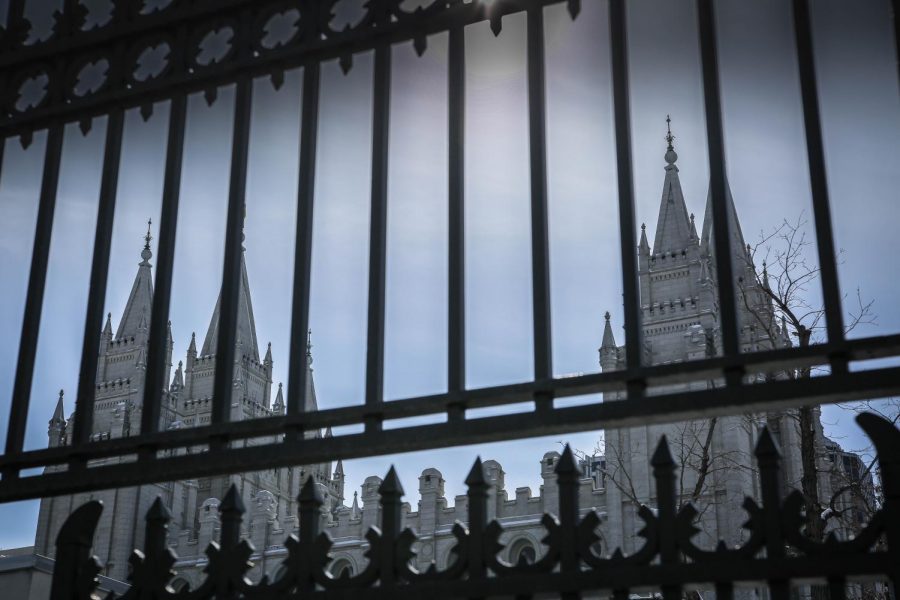Gholami: Religious Freedom Is No Excuse for Discrimination in the Workplace
August 14, 2020
Upon discovering that six of the nine justices on the Supreme Court were raised Catholic, it’s no wonder the cases concerning religious liberty this term turned out the way they did. In a 7-2 ruling for the combined case of Our Lady of Guadalupe School v. Morrissey-Berru and St. James School v. Biel, the Supreme Court held that federal laws which protect teachers from discrimination in the workplace do not apply to the employees of “church-run schools whose duties include religious instruction.” The high court’s intentional refusal to hold religiously affiliated employers accountable for employment discrimination under Title VII — the federal law that protects employees against discrimination “on the basis of race, color, religion, national origin or sex”— has consequently stripped thousands of employees of their legal protections.
Justice Ginsburg, among other liberal justices of the court, expressed concern with similarly broad anti-discrimination exemptions for religious employers. They cautioned that religious schools could potentially block lawsuits brought by a “teacher fired after reporting a student’s complaint about sexual harassment by a priest.” Regardless of where you work, every employee should have the ability to safeguard themselves from civil rights abuses; justifying that discrimination with religious motives is no exception.
On May 11, the Supreme Court heard the religious liberty cases involving two elementary Catholic-school teachers, Agnes Morrissey-Berru and Kristen Biel, who brought employment discrimination cases against their employers. Morrissey-Berru sued her employer on the basis of “age discrimination when her contract was not renewed” while Biel claimed, “her school had violated the Americans with Disabilities Act by declining to renew her contract after she was diagnosed with breast cancer.” Both Morrissey-Berru and Biel’s lawsuits were challenged due to employer immunities provided by a legal doctrine called the ministerial exception.
A 2012 Supreme Court Case gave rise to the idea of the ministerial exception which states that “employees, who range from parochial schoolteachers to church music directors” are not protected from workplace discrimination like “sex or race discrimination claims against their religious employers … regardless of whether or not religious belief motivated the discrimination.” Title VII workplace discrimination laws are afforded to all other employees and are incredibly important. Maggie Siddiqi, director of the Faith and Progressive Policy Initiative at the Center for American Progress said that “this decision could strip away the right of millions of workers at religious institutions — from teachers to health care professionals — to sue employers if they experience employment discrimination.”
The court’s ruling in Guadalupe renders these Catholic-school teachers unshielded by Title VII, despite the fact that they taught “primarily secular subjects, lacked substantial religious titles and training, and were not even required to be Catholic [by their employer].” In Justice Sotomayor’s dissent, she cites that by classifying these teachers as ministers of the Catholic faith, employers have “free rein to discriminate because of race, sex, pregnancy, age, disability, or other traits protected by law when selecting or firing their ‘ministers,’ even when the discrimination is wholly unrelated to the employer’s religious beliefs or practices.”
Supreme Court Justices are supposed to be secular clerics. Still, it comes as no surprise that other religious liberty cases this term have trended towards siding with the religious institution in question. In Espinoza v. Montana Department of Revenue, the court ruled that states have to use taxpayer dollars to fund scholarships to religious private schools if they fund scholarships to non-religious private schools. “Dissenting justices said the decision damaged the separation of church and state.” The case of Little Sisters of the Poor vs. Pennsylvania sustained a “Trump administration regulation that would free employers from providing contraceptives to their employees if they have a religious or moral objection, potentially leaving more than 120,000 women with no coverage.”
These decisions have far-reaching implications for Utah because our state has an entwined history of mixing religion and politics. Even BYU law professor Frederick Gedicks sees how the decision in Guadalupe can be used to discriminate employees of religious institutions as “employees lumped into this legal carve-out are essentially barred from suing over a lost job, even if they have evidence that their firing was discriminatory … If that person is a minister, then you can terminate them for any reason or no reason.”
The LDS Church is one of the largest employers in Utah with 5,000 workers at their SLC office building, 4,000 BYU academic and administrative employees, and an additional 4,000 staff for the BYU conference center alone. There are currently 17 LDS temples with six additional temples in the works. This could mean that thousands of Utahans may no longer have legal protection if they lose their job due to discrimination by their employer.
This Supreme Court ruling opens the doors for employers to use unchecked discriminatory behavior in the workplace without measures to protect employees. This decision could affect many employees who can be loosely regarded as a minister by their employer. Utahns who work for religiously-affiliated organizations should read up on their rights and be wary of encroachment.








